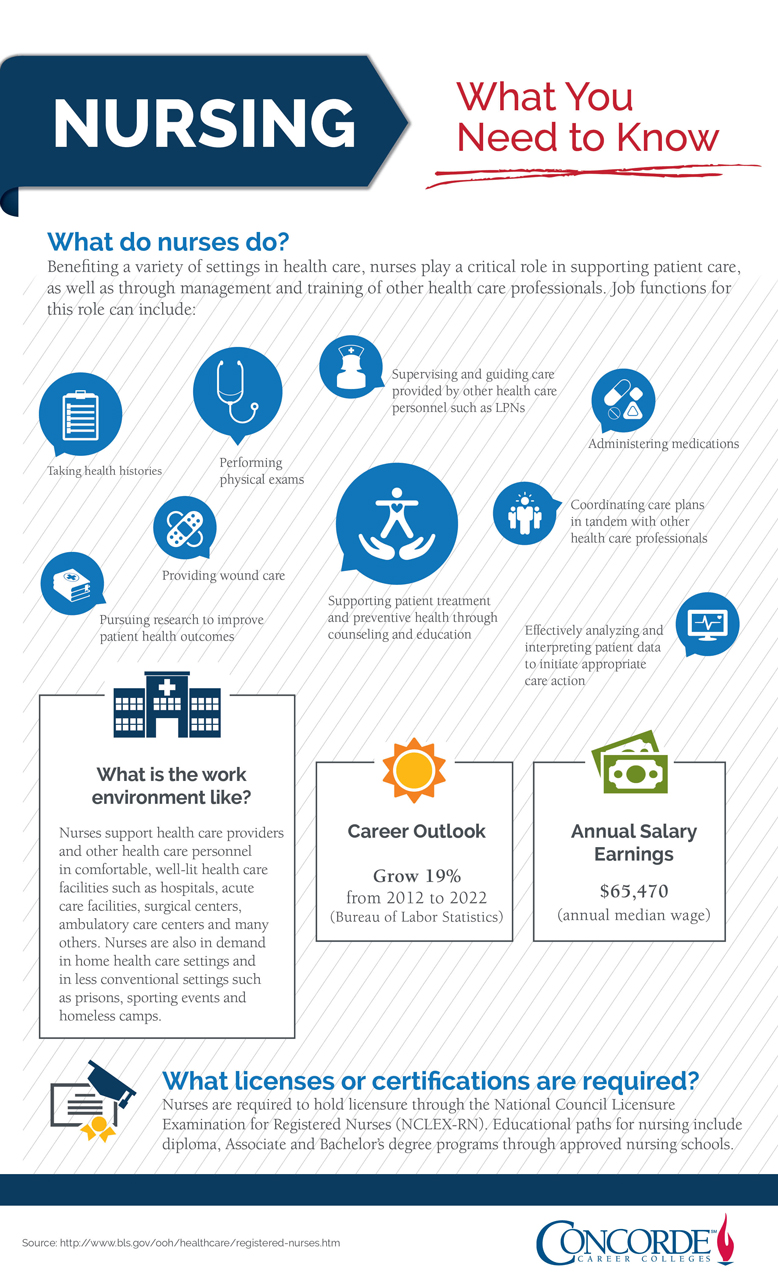
Nurses serve all over the world, across a wide spectrum of roles in health care. Whether it's comforting a scared child receiving his or her first flu shot or assisting in complex, critical surgery, nurses are a vital part of health care. As we celebrate National Nurses Week, it's a good time to shine the spotlight on what it takes to give so much through this invaluable role.
WHAT DO NURSES DO?
Registered nurses provide multiple levels of support to health care providers and other health care staff. These duties can include:
- Taking health histories
- Performing physical exams
- Supporting patient treatment and preventive health through counseling and education
- Providing wound care
- Administering medications
- Coordinating care plans in tandem with other health care professionals
- Supervising and guiding care provided by other health care personnel such as LPNs
- Pursuing research to improve patient health outcomes
- Effectively analyzing and interpreting patient data to initiate appropriate care action
WHAT IS THE WORK ENVIRONMENT LIKE?
Nurses work in a wide variety of familiar job settings, including hospitals and doctors' offices, and other health care facilities.
Nurses can also be found serving in some less traditional settings, including camps, homeless shelters, prisons, and sporting events. Other than these nonconventional settings, most nurses work in comfortable health care environments.
SALARY EARNINGS/JOB GROWTH
According to the Bureau of Labor Statistics, nursing jobs are forecasted to grow by 19% between 2012 and 2022, which is a faster-than-average rate. With a growing aging population and increased emphasis on preventive care and chronic diseases such as diabetes and obesity, professionals in the field continue to be in demand. The average RN salary in 2012 was $65,470, but salary varies by region.
WHAT DO YOU LEARN DURING NURSING TRAINING?
Nurses function as a broad support for providers, patients, and other health care personnel, and their training and education reflect this multifaceted role. Focus areas during career training can include:
- Anatomy and physiology
- Growth and development
- Pharmacology
- Nutrition
- Communication
- Sciences
- Care of patients with complex illnesses
- Critical thinking
- Maternal-child care
- Community health
- Leadership
WHAT LICENSING OR CERTIFICATIONS ARE REQUIRED?
There are three general paths to nursing, including an Associate nursing degree and Bachelor's degree path, as well as diploma programs. After completing our online RN to BSN program or any of our other nursing programs and obtaining a nursing degree, you can sign up to take this exam. All three paths must be pursued at an approved nursing school like Concorde. Licensure is also required for registered nurses through the National Council Licensure Examination for Registered Nurses (NCLEX-RN).
Nurses have an impact on health care that goes beyond their required, daily job functions, in the personal connections they create with those they serve. This might be the most important aspect of nursing - and the one most celebrated during this week and every week.
Learn more about the exciting field of nursing through the following resources:
Resources:
www.concorde.edu/nursing-programs/nursing-pre-licensure
www.nursingworld.org/EspeciallyForYou/What-is-Nursing/Tools-You-Need/RNsAPNs.html
www.bls.gov/ooh/health care/registered-nurses.htm
www.discovernursing.com/why-be-a-nurse#.VP8sB-Fy0sQ

Take The Next Step Towards a Brighter Future
We have a Concorde representative ready to talk about what matters most to you. Get answers about start dates, curriculum, financial aid, scholarships and more!




